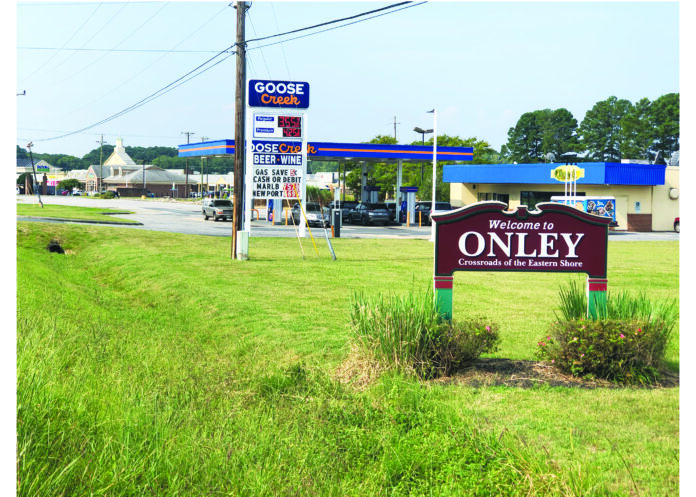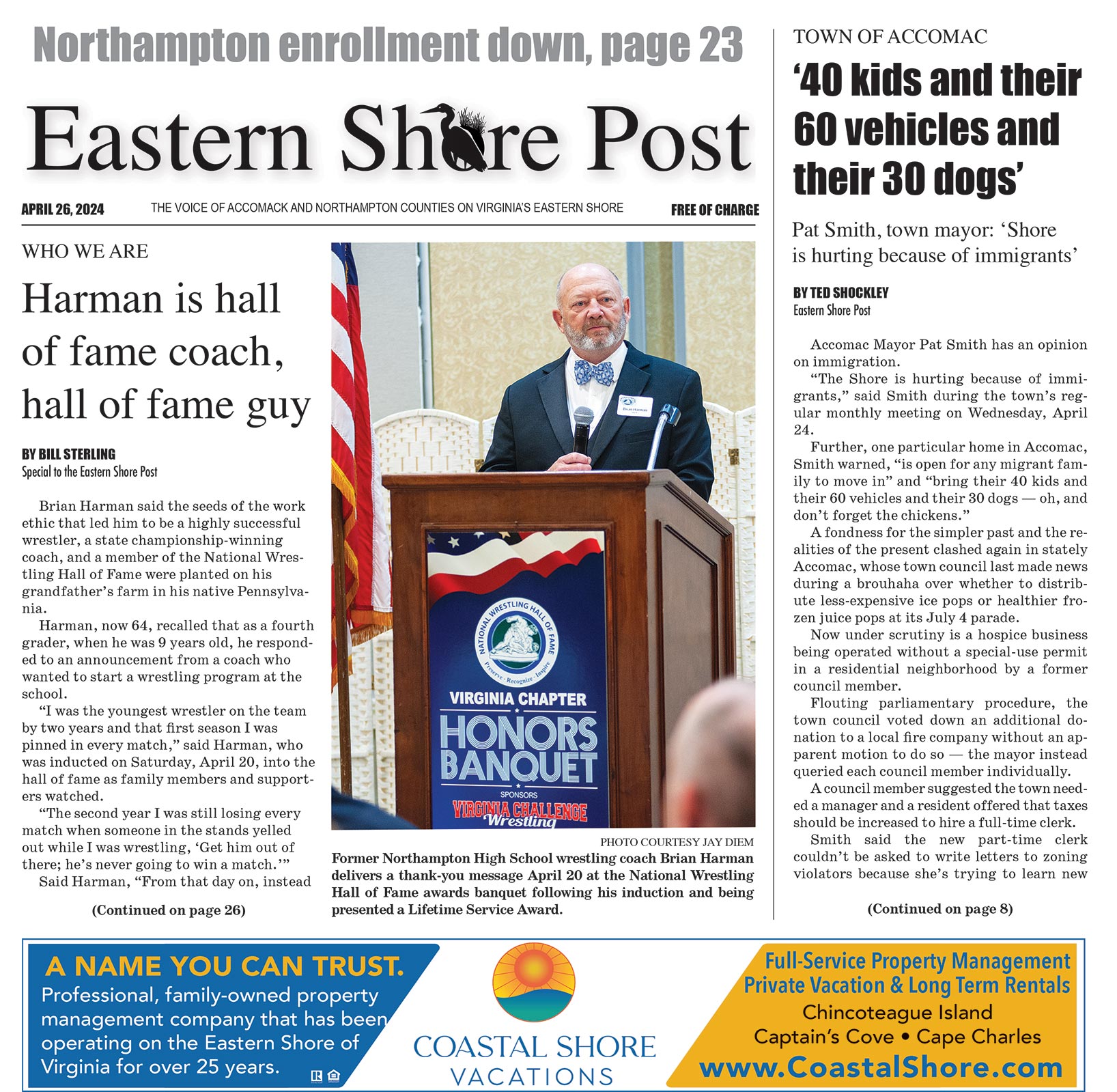BY RYAN WEBB, Shore First —
If you’re from here or you’ve been here long enough, you know that the Eastern Shore is home to many uniquely named places that can be tricky for outsiders to pronounce.
In the April 2023 issue of Shore First, I covered how to say (and not say) Chincoteague. In May’s issue, I discussed local and nonlocal pronunciations of Onancock. Wachapreague was discussed in June’s issue, Machipongo was featured in July’s, and Quinby was the subject of the August edition. Be sure to check those out if you missed them.
As I’ve mentioned previously, the topic of pronunciations of local town and place names on the Eastern Shore often yields lively discussions online.
To research how locals have heard various Eastern Shore town and place names (mis)pronounced by outsiders, I turned to Facebook. To be exact, I posed the question to the 11.2K members of the group Shoreborn, moderated by Barry Mears and dedicated to celebrating Eastern Shore living, for examples of these mispronunciations.
The group did not disappoint. The first discussion, which was originally posted on April 5, 2022, yielded 89 comments, while the second discussion, posted on March 18, 2023, generated 120 comments.
If you’re interested in reading the discussions, become a member of Shoreborn. Once you’re a member, you can find the threads by searching for #magine on the group page.
I’ve already discussed Chincoteague (SHINK-uh-tig), Onancock (uh-NAN-kok), Wachapreague (WATCH-uh-prig), Machipongo (match-uh-PUNG-oh), and Quinby (KWIM-bee).
Another town that was mentioned several times by commenters was Onley — the Crossroads of the Eastern Shore and longtime home of the Eastern Shore Post.
To natives and come-heres who have been here long enough, the town’s name is pronounced just like the word “only.” That is, OWN-lee is a two-syllable name with the stress being placed on the first syllable.
The vowel in the first syllable in OWN-lee is actually a diphthong (a sound formed by the combination of two vowels in a single syllable, in which the sound begins as one vowel and moves toward another) /o/ that begins as a close-mid back rounded vowel and glides to the near-close near-back rounded vowel.
Various participants in the online discussion reported hearing outsiders refer to the town as AHN-lee. This pronunciation uses an entirely different vowel sound from the one just discussed. Whereas the local pronunciation uses the /o/ diphthong, this erroneous pronunciation uses the open back unrounded vowel, the same one heard in the word “father.”
Another interesting outsider pronunciation reported by the group was WUN-lee. Maybe the offending party or parties simply misread the name and thought it was spelled Onely, hence why the first syllable sounds like the number one. In any case, this pronunciation adds the /w/ sound (voiced labial–velar approximant in fancy phonetic terms) to the beginning of the first syllable. The vowel in the first syllable is also changed to the open-mid back unrounded vowel.
A third mispronunciation mentioned by commenters was oh-NEL-ee. This one adds an extra syllable in a process known as epenthesis. In phonology, epenthesis refers to the addition of one or more sounds to a word.
Another example of epenthesis would be the way that former president George W. Bush pronounces the word “nuclear” as “nucular.” I’m not sure how someone would get oh-NEL-ee out of Onley, unless again they simply misread it as Onely.
The last variation mentioned by the folks from the Shoreborn group was OL-nee. In this case, the offending party has transposed the /l/ and /n/ in a process known as metathesis. Maybe they were confusing our Onley with Olney – an unincorporated area in Montgomery County, Md.
Thanks again to everyone from Shoreborn who participated in these online discussions.
Be sure to pick up next month’s Shore First for the next part in this series on local pronunciations and funny nonlocal (mis)pronunciations of our beloved ESVA place names.
The writer works at Shore First and the Eastern Shore Post. He is an Eastern Shore native and a lifelong resident of Machipongo. He has a master’s degree in applied linguistics from Old Dominion University and is interested in the everyday language people use on Virginia’s Eastern Shore.



